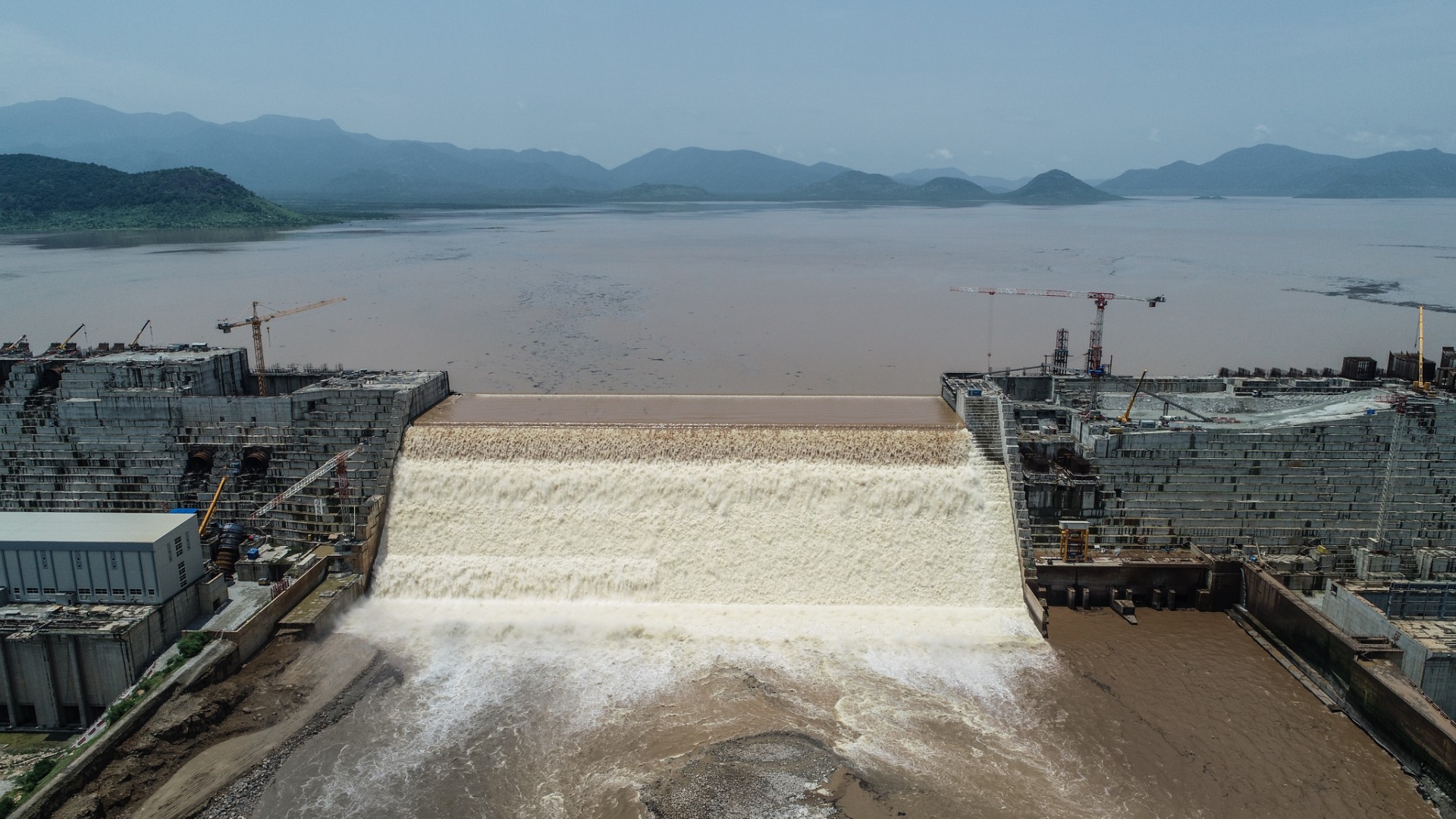Nairobi, Kenya – Ethiopia said Saturday that it has begun a second round of negotiations with Egypt and Sudan over a controversial mega-dam built by Addis Ababa on the Nile, the source of long-running tensions between the three nations.
Ethiopia this month announced the completion of the fourth and final filling of the Grand Renaissance Dam, prompting immediate condemnation from Cairo, which denounced the move as illegal.
Egypt and Sudan fear the massive $4.2-billion dam will severely reduce the share of Nile water they receive and had repeatedly asked Addis Ababa to stop filling it until an agreement was reached.
For years at loggerheads over the issue, Egyptian President Abdel Fattah al-Sisi and Ethiopian Prime Minister Abiy Ahmed agreed in July to finalize a deal within four months, resuming talks in August.
“The second round of the tripartite negotiation among #Ethiopia, #Egypt, and #Sudan on the… annual operation of the Grand Ethiopian Renaissance Dam (#GERD) has commenced today, September 23, 2023, in Addis Ababa,” Ethiopia’s foreign ministry said on X, formerly Twitter.
“Ethiopia is committed to reaching a negotiated and amicable solution through the ongoing trilateral process.”
Protracted negotiations over the dam since 2011 have thus far failed to bring about an agreement between Ethiopia and its downstream neighbors.
Egypt has long viewed the dam as an existential threat, as it relies on the Nile for 97 percent of its water needs.
The dam is central to Ethiopia’s development plans, and in February 2022 Addis Ababa announced that it had begun generating electricity for the first time.
At full capacity, the huge hydroelectric dam — 1.8 kilometers long and 145 meters high — could generate more than 5,000 megawatts.
That would double Ethiopia’s production of electricity, to which only half the country’s population of 120 million currently has access.
The position of Sudan, which is currently mired in a civil war, has fluctuated in recent years.
The United Nations says Egypt could “run out of water by 2025” and parts of Sudan, where the Darfur conflict was essentially a war over access to water, are increasingly vulnerable to drought as a result of climate change.








